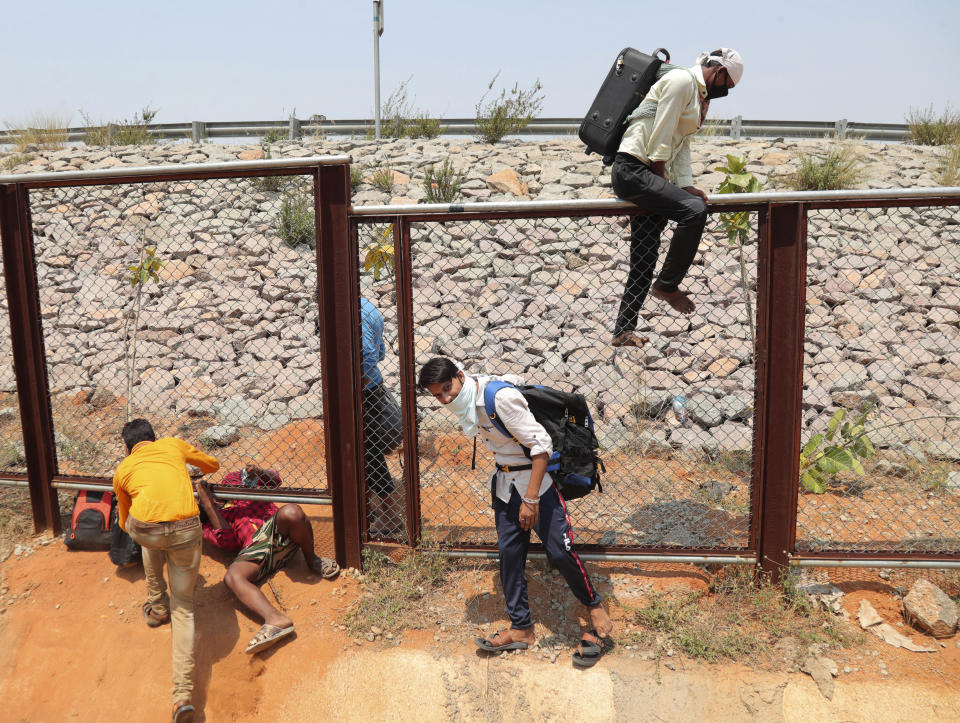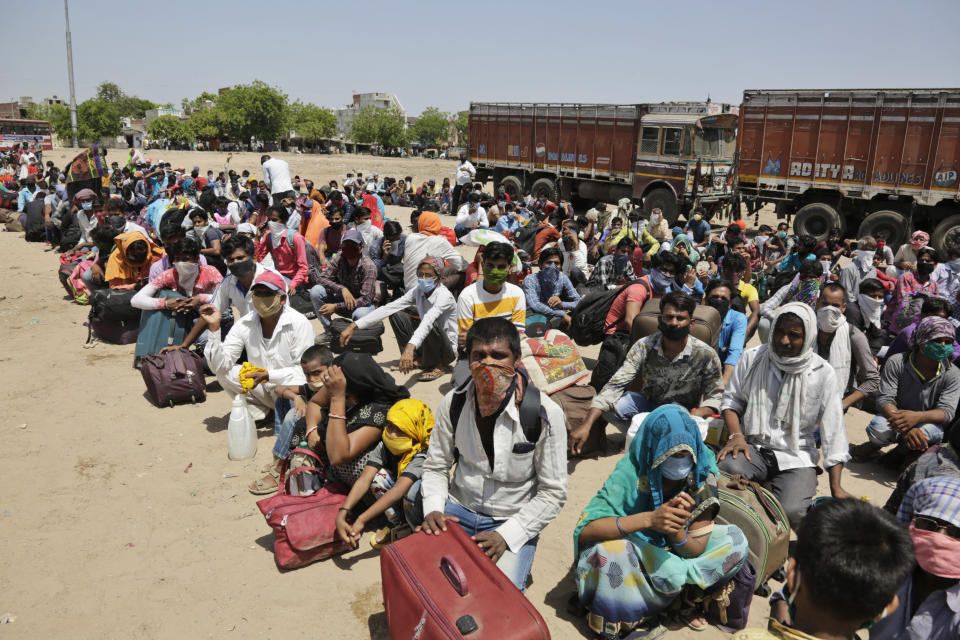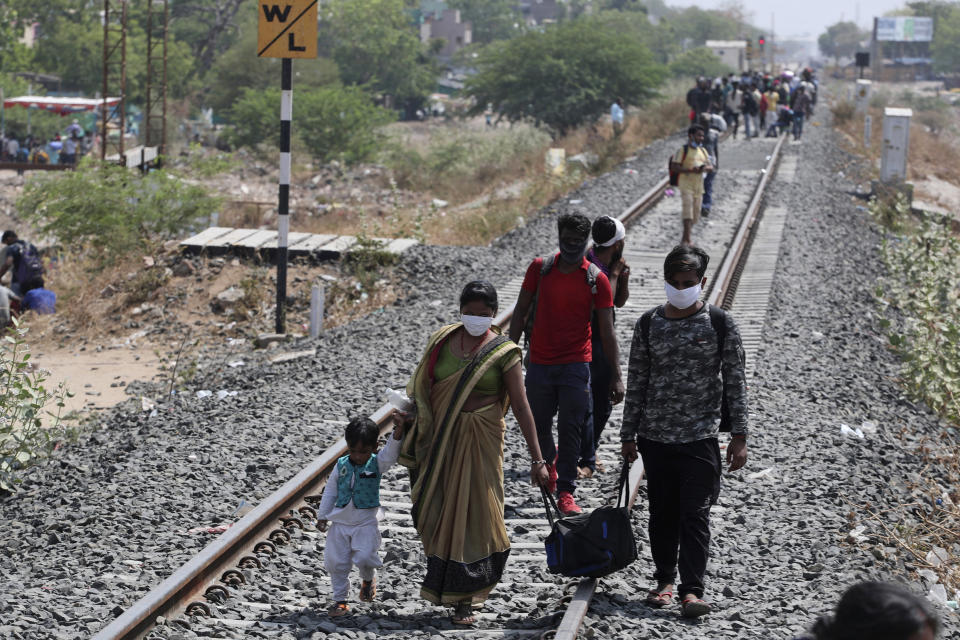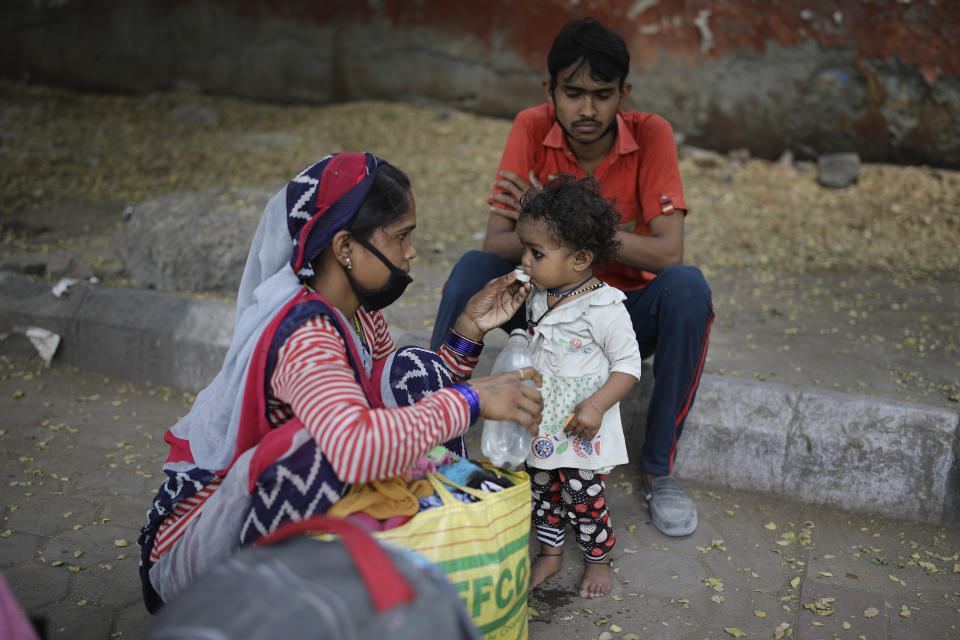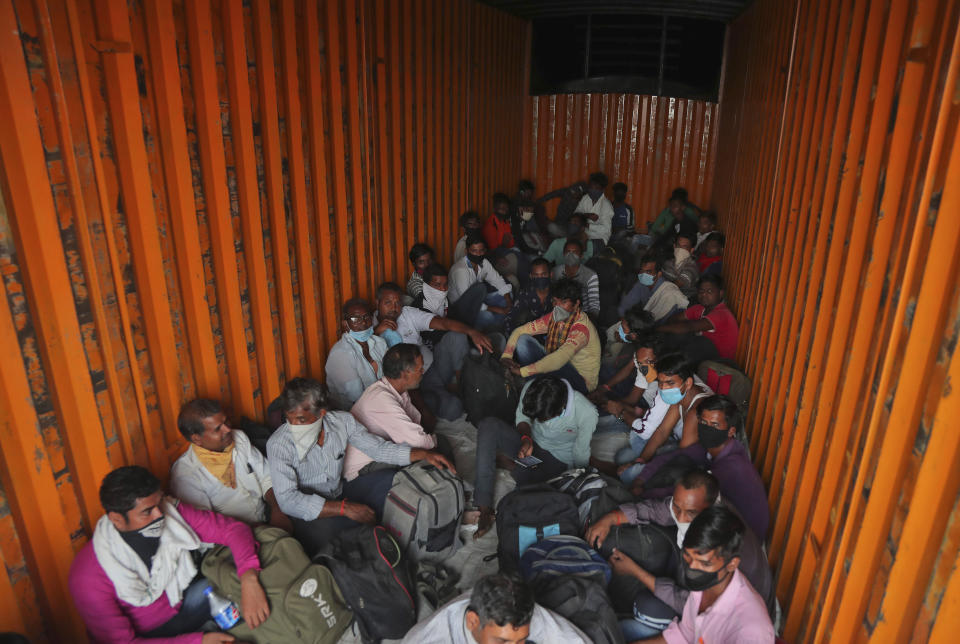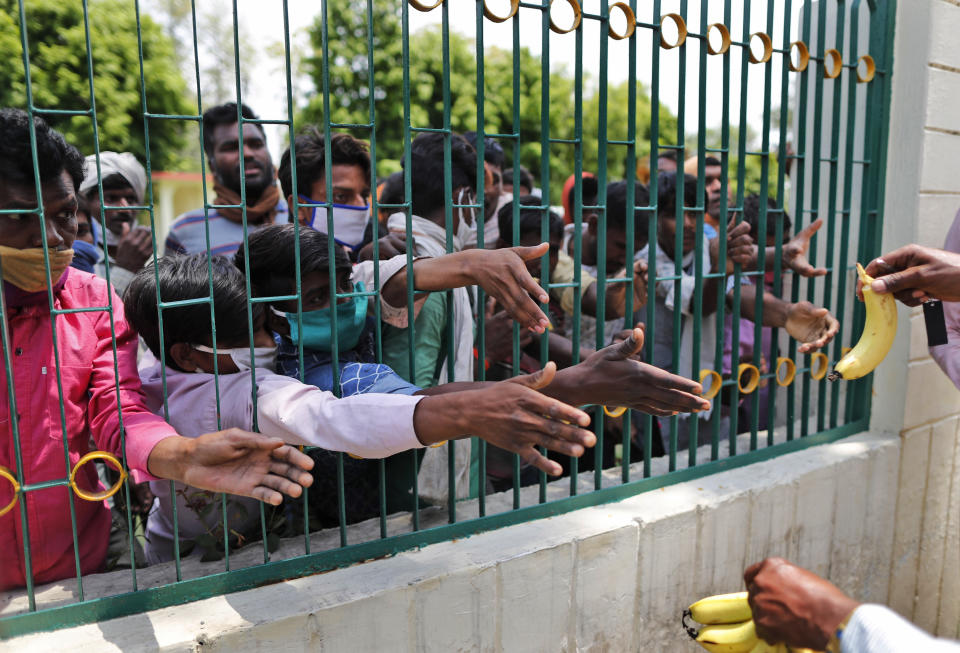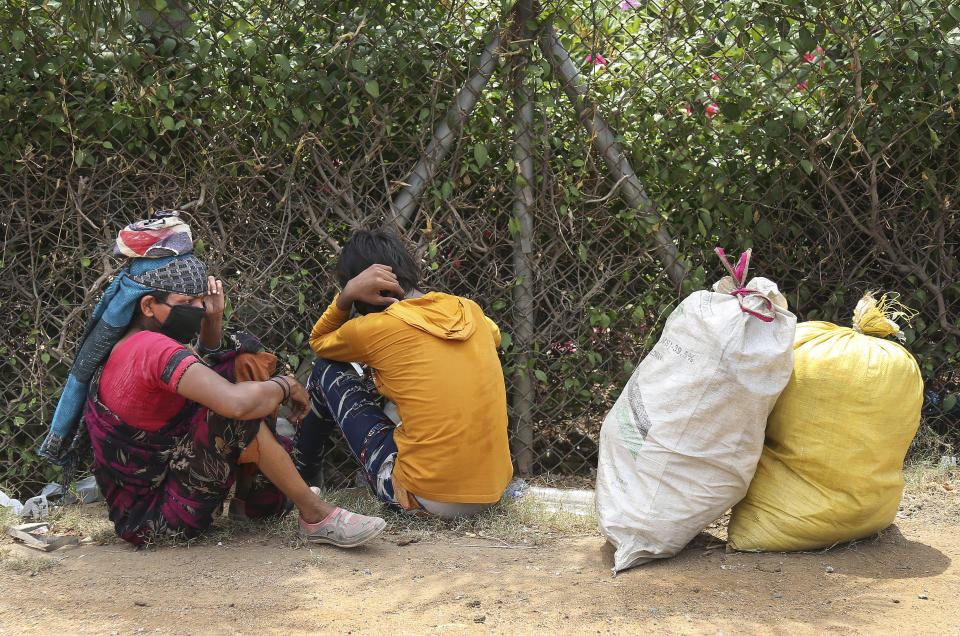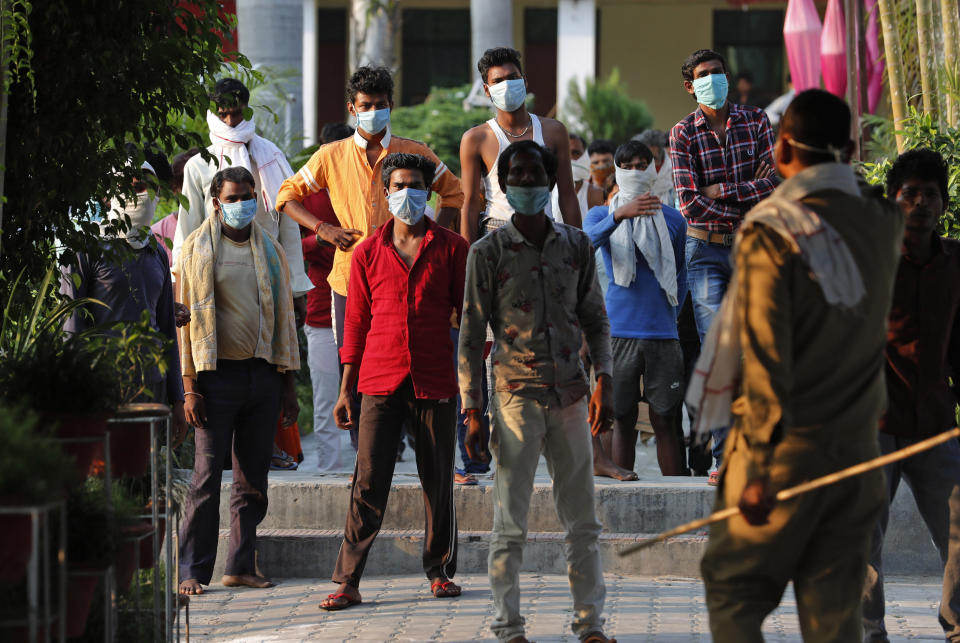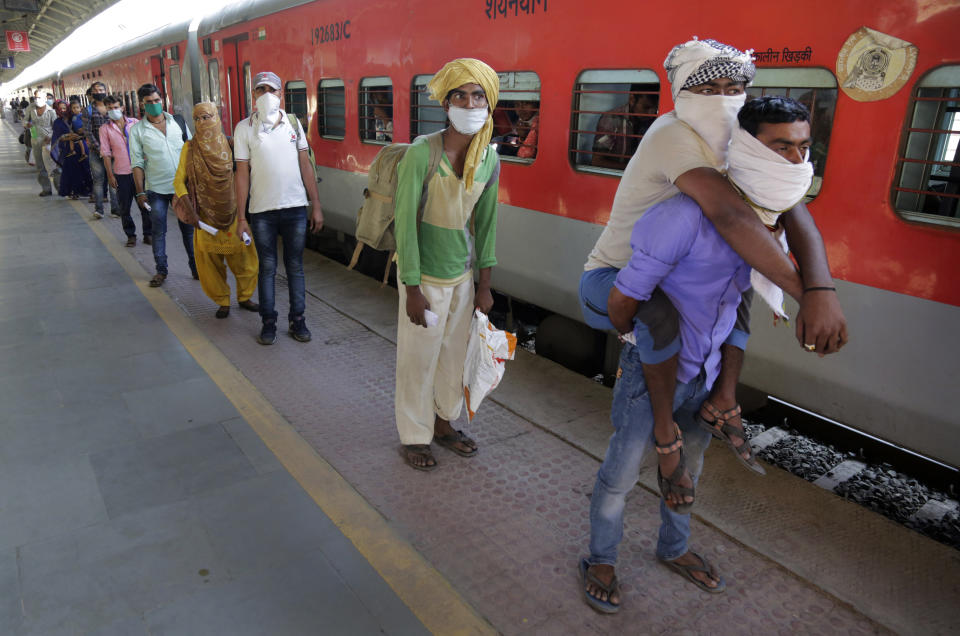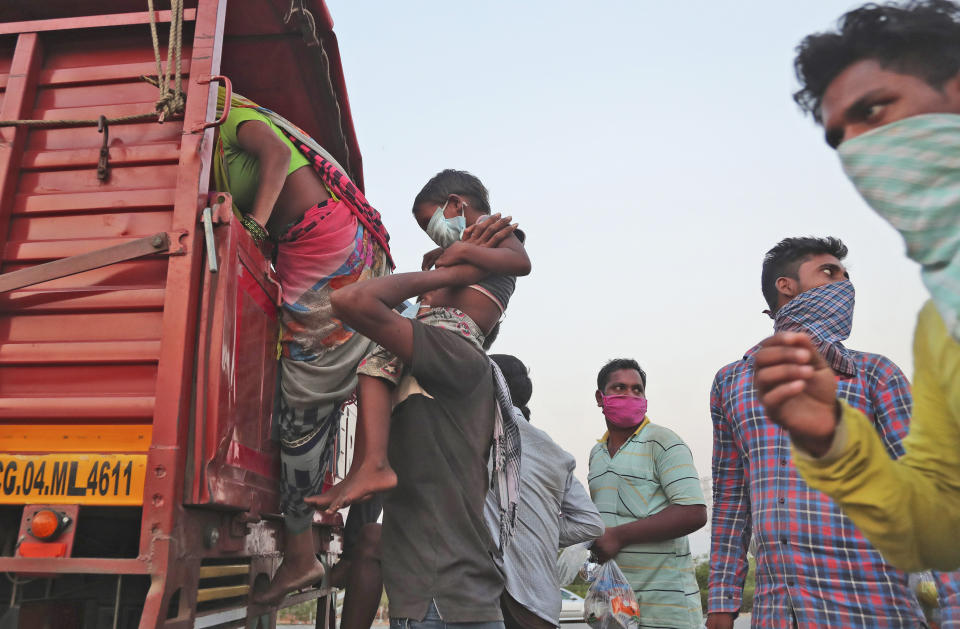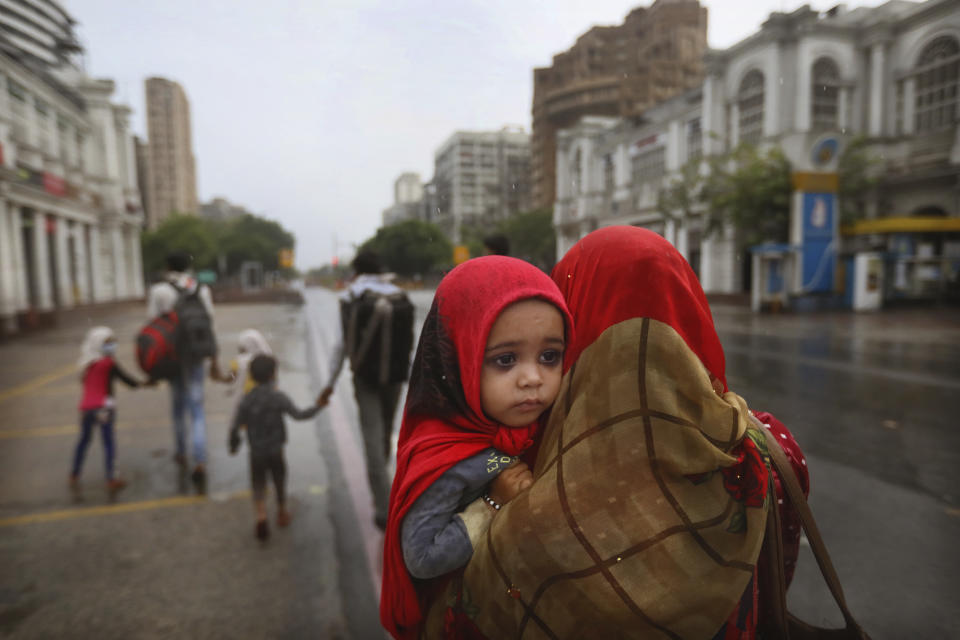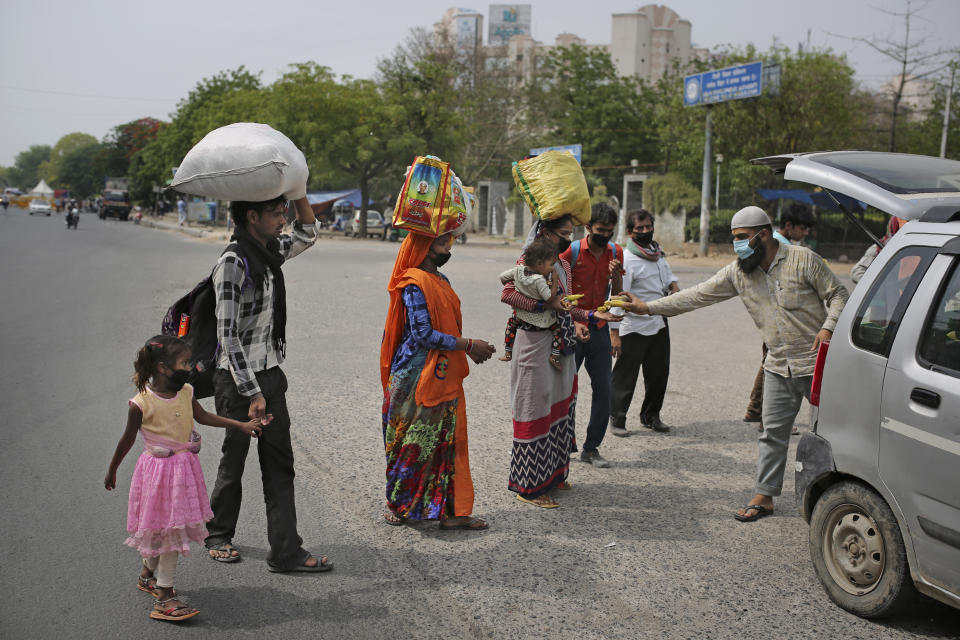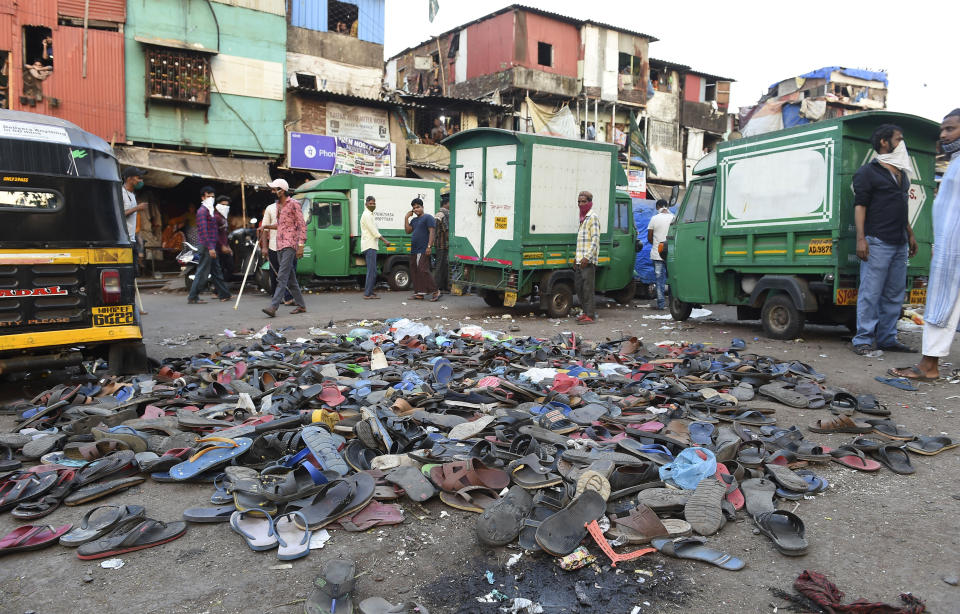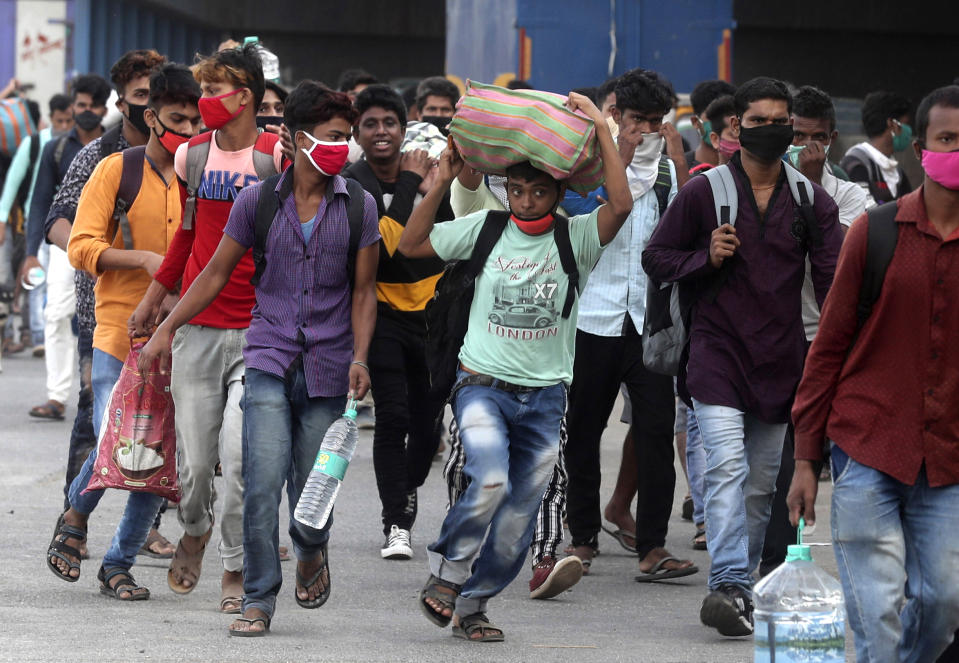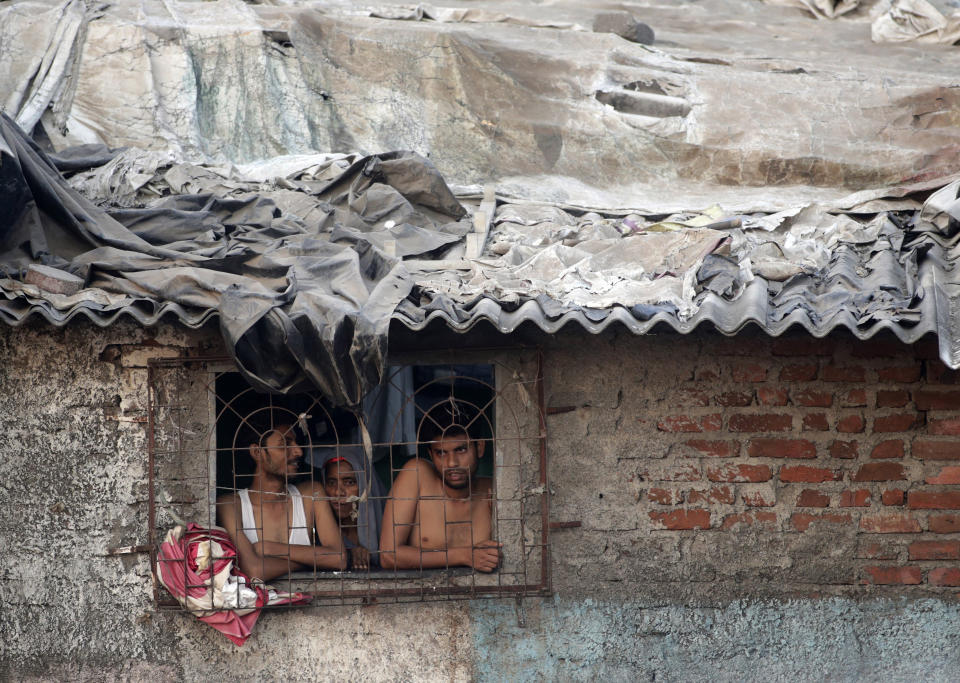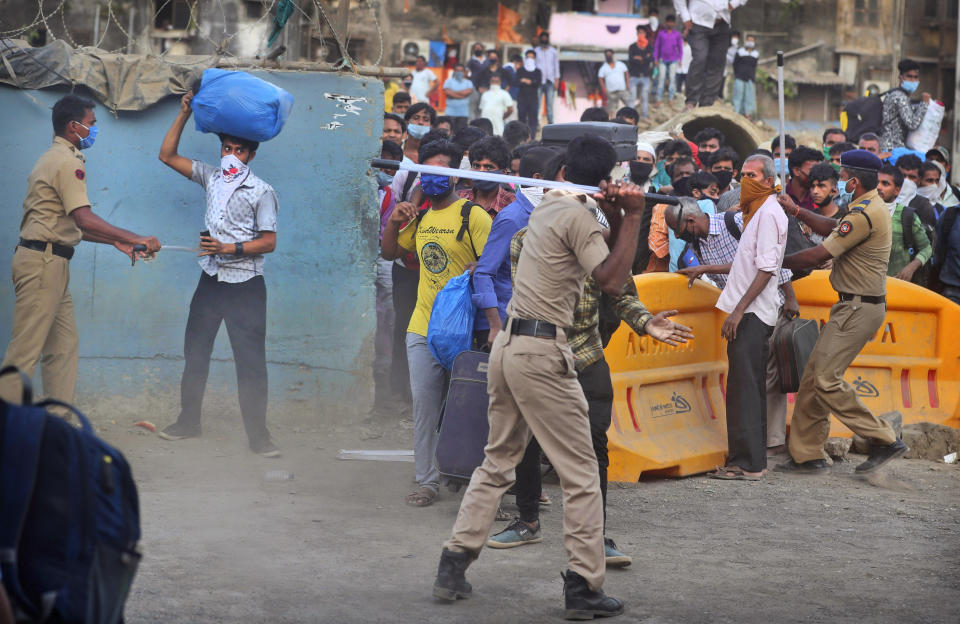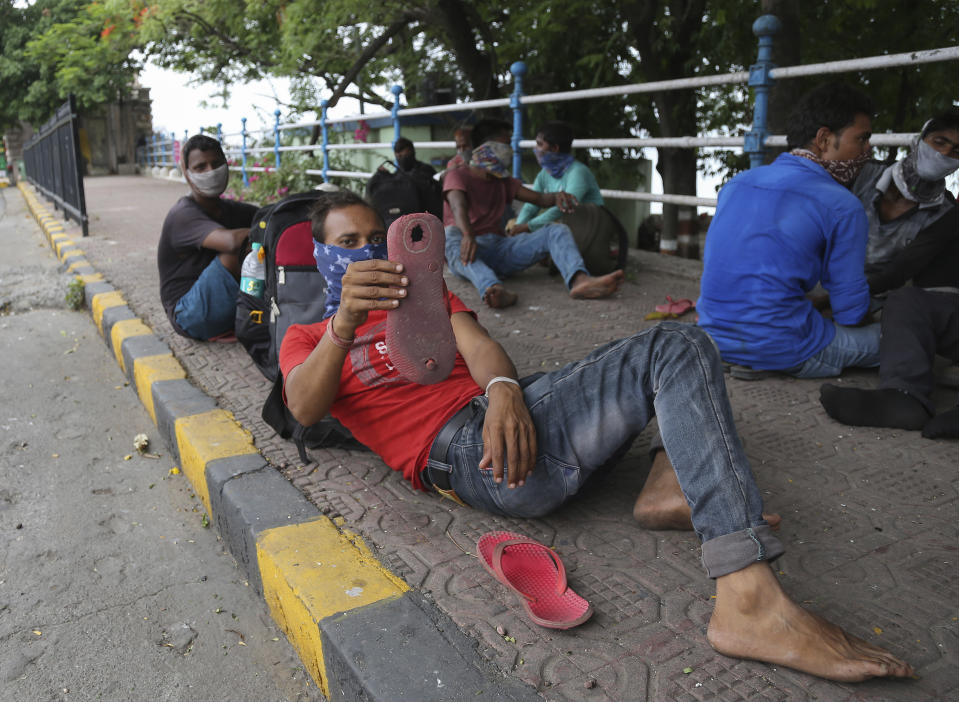AP PHOTOS: Jobless in crisis, Indian migrants head home
NEW DELHI (AP) — Tens of thousands of impoverished migrant workers are on the move across India, walking on highways and railway tracks or riding in trucks, buses and crowded trains in blazing heat.
Some are accompanied by pregnant wives and young children, braving threats from the coronavirus pandemic.
They say they have been forced to leave cities and towns where they had toiled for years building homes and roads after they were abandoned by their employers — casualties of a nationwide lockdown to stop the virus from spreading.
The government and charities have tried to set up shelters for them, but their numbers are simply overwhelming, leaving them little choice but to head on a perilous journey home.
Last week, a train crashed into a group of tired workers who fell asleep on the tracks while walking back home in western Maharashtra state, killing 16. On Saturday, at least 23 laborers died in northern India when a truck they were traveling in smashed into a stationary truck on a highway.
“I don’t know what the future holds for me,” said Hari Ram, a 28-year-old mason who set out for his village in central India this week on foot, hoping to hitch a ride on the way.
"One thing is certain: If I die, I will die in my home. I will never set foot in New Delhi again,’’ he said.
Dasrath, 32, who uses one name, said "Indian politicians only come to us for votes during elections. We are facing a very difficult situation now — nobody is helping us.”
Half of India’s population earns less than $3 a day. Over 90% of the workforce is employed in the informal sector, without access to significant savings or social protection benefits such as paid sick leave or insurance, according to the World Bank.
The migrant workers say they can return to farming and also take up jobs like building roads, water harvesting in drought-hit areas and construction of animal shelters under a government program that guarantees 100 days of employment a year in rural India for 200 rupees ($2.65) per person per day.
Their exodus is causing worries for India’s top consumer goods companies, which fear a possible labor shortage as they resume production.
